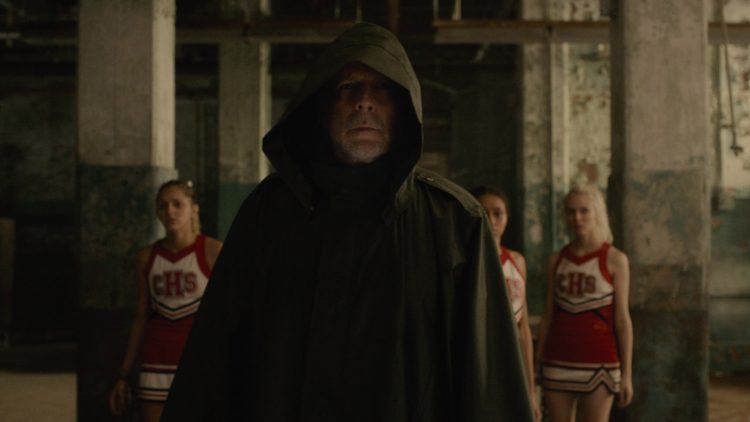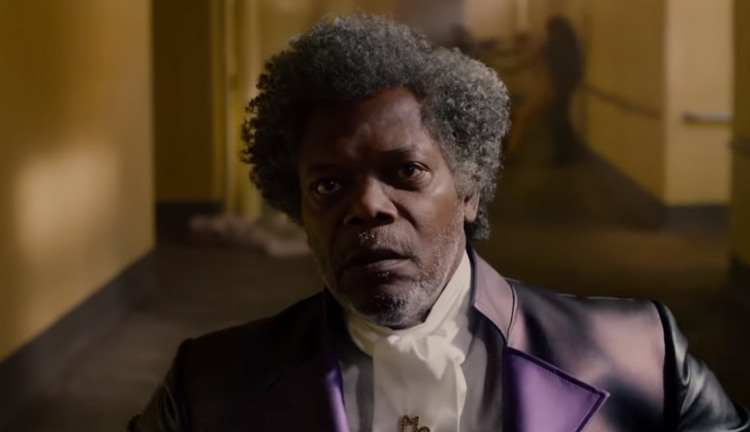
Glass is a wildly ambitious conclusion to M. Night Shyamalan's Unbreakable trilogy that succeeds and fails in many ways.
Glass — the finale of M. Night Shyamalan's surprise Unbreakable trilogy — is ambitious and wild. It works completely in some aspects and fails in others. But I'm glad that it exists. Shyamalan took the initiative and self-financed the film, but it's the kind of risky movie that I want to see coming from studios.
After the critical reevaluation of the original Unbreakable that has pushed it to become the #filmtwitter default pick for M. Night Shyamalan's best film and Split's surprise twist of being in the same universe as Unbreakable, it was only natural that Shyamalan finished his comic book film series as a trilogy.
Though, that begs the question of whether or not a third film was actually necessary. Unbreakable is driven by the mystery of whether or not David Dunn (Bruce Willis reprising his role) is actually a superhero — spoiler: the answer is a resounding yes — and Split works completely in a vacuum as a kidnapping thriller. So, what's the point of merging the two?
I'm not sure Shyamalan even knows the answer to that other than that it would be cool to have David Dunn — now known as “The Overseer” — go up against James McAvoy's “The Beast” introduced in Split. The result is a muddled but interesting story that could have been tightened up as the pacing revs up and slows down throughout.
Glass picks up 19 years after the events of Unbreakable and three weeks after the events of Split. David Dunn, with the help of his son Joseph (Spencer Treat Clark reprising his role from the original), is continuing his work as a vigilante in Philadelphia. With superhuman strength, near invincibility, and the ability to sense evildoings in people past, he is a proper superhero.

Elsewhere, Kevin Wendell Crumb (James McAvoy) — the body that houses 24 distinct personalities including a nefarious group called “The Horde” and a human-animal called “The Beast” — has taken four cheerleaders for a sacrifice.
Dunn tracks “The Horde” to an old factory after weeks of searching. After releasing the cheerleaders he goes head to head with “The Beast” in a near perfect matchup. However, they're soon incapacitated and taken by Dr. Ellie Staple (Sarah Paulson) and a SWAT team.
There is so much to admire about the movie. For the first act, Shyamalan essentially gives you want you wanted — an Unbreakable and Split crossover with David Dunn going up against “The Horde.” It's the kind of white-knuckle suspense that he does so well.
From the cold open where David incapacitates a pair of neighborhood hooligans who knock out people for fun to Joseph helping him track down “The Horde” to the warehouse brawl, Shyamalan reminds us why he was such a successful director in the first place. It's kinetic and tense and scary. So when Dr. Staple takes over the movie it's a jarring switch.
David and “The Horde” are locked in a high-security mental institution — David in a room that would flood him with water (his one weakness) if he tried to escape and “The Horde” with a flashing light that incapacitates them and switches the personality in control.
Also in the facility is Elijah Price — aka Mr. Glass — who was David's arch-nemesis in Unbreakable. However, he has been heavily sedated and unresponsive for years. Though his mother Mrs. Price (Charlayne Woodard — fantastic here) still tries to visit him.

We learn that Dr. Stapler is a specialist in people with the specific delusion of being a superhero and was given three days to convince the trio that they don't actually have powers. So, much of this section of the movie — the largest section — is monologuing about the very nature of superheroes. Glass continues to explore the mythology started in the first movie about comic books being records of the remarkable things that people can actually do.
More interestingly, though, it forces David and “The Horde” to actually reconsider their importance in the world. They truly question whether they are just normal people with very specific traumas. The movie becomes a dance between Dr. Staple, “The Horde,” David, and Mr. Glass — who might be more aware than he lets on.
The plot stalls in a way that will divide audiences. Truthfully, it didn't entirely work for me. But it completely worked for my boyfriend. And I can see how someone would be completely taken with the movie. The pacing didn't work for me, but all the punches it was taking landed.
The final act is something of a marvel. What the movie pulls off is quite a stunner, which is why I end up being more positive on the movie as a whole than negative. Glass is not structured like a movie “should” be, but it somehow still builds towards a satisfying finale involving Joseph, Mrs. Price, and Split's Casey Cooke (the great Anya Taylor-Joy). Let's just say that Shyamalan still knows how to pull off a twist — or a couple.
I owe Glass another viewing. It's ridiculous and ambitious and unexpected, which are all reasons why I didn't connect with it this time around. I have a feeling knowing what I'm getting into will make me understand it more. Either way, whatever you think of M. Night Shyamalan, you have to appreciate what he's done here. He maybe doesn't have all the skills to pull something off, but he certainly has the guts. And sometimes that's all it takes.
Glass is in theaters now.
Hey, I'm Karl, founder and film critic at Smash Cut. I started Smash Cut in 2014 to share my love of movies and give a perspective I haven't yet seen represented. I'm also an editor at The New York Times, a Rotten Tomatoes-approved critic, and a member of the Online Film Critics Society.
Comments are closed.